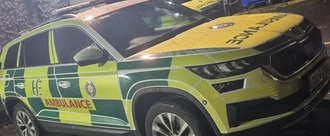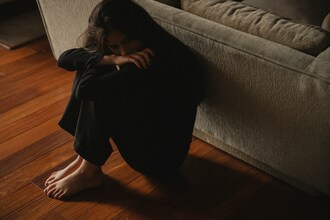- Featured
- Animal Rights
- Anti-racism
- Arts & Culture
- Children
- Climate
- Corporate accountability
- Crime
- Disability rights
- Economic
- Education
- Environment
- Food and Sustainable Production
- Gender Equality
- Governance and Transparency
- Health
- Housing
- LGBT Rights
- Mental health
- Northern Ireland
- Planning
- Privacy and Data Protection
- Rural Inequality
- Social Justice
- Trade
- Transport and Infrastructure
- Workers' Rights
- More
-
Reduced Pension age for night shift workersMost research indicates that people who work night shifts have reduced life expectancy due to the impact of shift work on our health as well as the unsocial impact. We believe therefore need to retire earlier on a voluntary basis allowing those who volunteer to retire at 60. The fact that night shift workers life expectancy is proven to be shorter than other workers then the impact on state finances should be no greater than those who retire after a life of working for example 9-5 all things considered and equal. Sent from my iPhone2 of 100 SignaturesCreated by Eddie Dunne
-
Keep Pathfinder Workers in the CommunityPathfinder is a collaborative HSE initiative between St Luke’s General Hospital Carlow/Kilkenny and the National Ambulance Service. It is an essential front line service that centres care around the elderly in Carlow and Kilkenny. - It supports to the most vulnerable in our communities to help them avoid a hospital stay. In 2024 they supported 300 patients and that number has been steadily increasing. They have knocked on the doors of hundreds of vulnerable people and allowed them to get the care and support they need in the comfort of their own homes. There is a wealth of data that shows hospital stays can increase the risk of catching deathly bugs or viruses. It can also increase the risk of medication errors, falls, immobility and many more instances that can increase mortality. Prevention is better than cure - - Ultimately, where it is safe and possible to avoid a hospital stay, it can be better for a person's health, particularly someone who may already have an underlying health issue. - It also means someone does not have to go through the logistical stress of a hospital stay which makes life easier for them and often, for the people and families who care for them. Yet shockingly, over Christmas, the Management of St. Luke's decided to remove this essential lifeline and re-deploy these workers. - Despite multiple attempts they have not provided any data to suggest this move is the best use of resources or is in the best interest of vulnerable people. The management say this is a "temporary" re-deployment but the manner in which they have callously cut Pathfinders does not inspire confidence, nor have they published any data that explores the ramifications that even a "temporary" closure will have on people. To date there has been a serious lack of transparency and oversight. This petition calls on the HSE and the management of St. Luke's to reverse their decision and keep Pathfinder Workers in the community. There is no evidence to suggest that re-deploying these workers into St. Luke's will result in more early supported discharges. We need funding to enhance more essential services and ESD - Not cuts to established essential services. It is possible that the removal of this service in Carlow and Kilkenny could be the start of a Nationwide move to cut this frontline service.306 of 400 SignaturesCreated by Adrienne Wallace
-
Restore 24/7 Rapid Response Vehicle in County RoscommonThe Rapid Response Vehicle (RRV) saves lives. An Advanced Paramedic should be on the RRV 24/7 - that was the promise made to the people of Roscommon. They are the ONLY personnel in the National Ambulance Service who can provide advanced life support. We need this critical service.3,220 of 4,000 SignaturesCreated by Claire Kerrane

-
Support Recovery in the Midlands: Detox Beds at Midlands Regional Hospital PortlaoiseWhen people in the Midlands ask for help with serious alcohol or drug dependence, there is often nowhere safe for them to go. Midlands Regional Hospital Portlaoise has no dedicated detoxification beds, meaning people can be left in overcrowded emergency departments or sent home to unsafe situations where withdrawal can be life-threatening. Laois County Council has already called on the Minister for Health to establish detoxification beds in Portlaoise Hospital. You can get behind this call by signing the petition today This call comes following a motion that was put down by Labour Councillor Marie Tuohy at the request of the ARC Project, a voluntary group supporting those affected by addiction, and their families Cllr Tuohy asked that three beds for alcohol and drug be set up with seven day admission pathways and integrated links to HSE addictions services and community recovery supports. Three medically supervised detox beds would save lives, support families, reduce pressure on emergency services, and create a real pathway into recovery. This is a small, practical change — but for many people, it would make all the difference.569 of 600 SignaturesCreated by The Arc Project

-
Scrap plans to charge for blister packsBlister packs are really important for people with medical conditions and for older people. These are the very people who already struggle to pay bills, and keep food on the table.1,360 of 2,000 SignaturesCreated by MyUplift
-
Solution not Pollution - Real Time Sewage Discharge MonitoringIreland Needs Real-Time Reporting of Sewer Discharges - Just Like the UK Across Ireland, rivers, lakes, estuaries, bathing and coastal waters are being polluted by regular storm overflows and sewer discharges, yet the public has no way to see when or where these events occur. Unlike the UK, Ireland has no national, real-time monitoring system to tell communities when their local waters are contaminated. Under the Urban Waste Water Treatment Regulations and Directives, Uisce Éireann and sanitary authorities are already legally required to monitor wastewater discharges and assess their impacts on receiving waters. But many overflows have no monitors or are not up to code. Without transparent, real-time reporting, these obligations are not meaningfully met, and the public remains unaware of pollution events happening in their own communities. Why This Matters • We can’t plan future wastewater capacity without accurate overflow data. Ireland cannot model infrastructure needs or comply with the Water Framework Directive if it does not quantify the true scale and frequency of sewer overflows. Real-time and historical data on CSOs are essential for evidence-based planning, upgrading the network, and preventing future pollution crises. • Public health and the environment are at risk. Untreated storm overflows often contain sewage, agricultural runoff, chemicals, and pathogens. They threaten bathing waters, drinking-water sources, shellfish areas, fisheries, wildlife, and recreation. • The technology already exists. The UK’s publicly accessible monitoring platforms — such as the National Storm Overflow Hub — show that real-time reporting is fully achievable and enormously beneficial for communities. see: https://www.streamwaterdata.co.uk/pages/the-national-storm-overflow-hub • Transparency builds trust. Citizens deserve to know when their local waters are unsafe. Real-time data empowers swimmers, anglers, families, fishers, environmental groups, and local authorities to make informed decisions. We, the undersigned, call on Uisce Éireann and the Irish Government to: 1. Fully comply with statutory obligations Ensure comprehensive monitoring of all wastewater discharges, including storm overflows and combined sewer overflows, as required under Irish and EU law. 2. Create a national, public, real-time reporting system Build an open-access online platform (like the UK system) showing: • when and where overflows occur, • their duration and estimated volumes, and • the type of discharge (untreated, partially treated, stormwater, etc.). 3. Use this data to plan for future capacity Commit to using real, measured overflow data to identify system weaknesses, inform capital investment, and meet long-term obligations under the Water Framework Directive and climate-resilience planning. 4. Protect our rivers, lakes, and coasts Reduce harmful discharges and ensure the public can see in real time when pollution events occur. Ireland deserves clean water, transparent reporting, and evidence-based planning. We urge Uisce Éireann and the Irish Government to act now.79 of 100 SignaturesCreated by sabrina Joyce Kemper
-
Provide care for those experiencing a miscarriage off site from Limerick maternity hospitalThe model of providing care off site from the maternity hospital exists already in other areas, within the gynaecology department in the main hospital. It is acknowledged how overburdened UHL is, but women's healthcare should not be neglected again. Providing a care pathway for those miscarrying in a site within Ennis and Nenagh for those with a confirmed miscarriage would allow the specific care needed for those patients and alleviate the need to go to UHL. This would reduce the trauma caused to the woman and partner and allow them to focus on recovery and processing the miscarriage without the extra burden of emotional trauma by mixing miscarriage care and antenatal care.1,115 of 2,000 SignaturesCreated by Frances Conlon
-
Make Miscarriage Leave a Legal Right in Ireland — No Woman Should Face This AloneMy name is Neeth Catherine Job, and on October 20th, 2025, my life changed forever. I was 13 weeks pregnant with twins when I experienced a miscarriage. What many people don’t realise is that miscarriage can involve the full labour process. For me, it lasted almost 24 hours. I delivered our first baby at around 2 a.m., and our second at around 11 p.m. that night. The physical pain was overwhelming, and due to additional medical complications, my recovery took nearly two weeks. The emotional pain is something I will carry for much longer. One of the things that carried me through this devastating experience was my faith in God. In the midst of loss and confusion, I trusted that He sustains life, and that trust became my strength when I had none left. The hospital staff were incredibly supportive, and so were my managers, who told me to take all the time I needed. I was grateful for that compassion, but what shocked me was discovering that Ireland has no statutory miscarriage leave at all. I am originally from India, where women receive six weeks of paid leave after a miscarriage. Having worked in Ireland for the past years, I assumed similar protections existed. Instead, I had to rely on my sick leave and annual leave, simply because there is no legal entitlement for women who experience pregnancy loss before 23 weeks. I was lucky to have understanding employers. But many women do not. Many return to work in pain. Many return while still bleeding. Many return while grieving a loss that cannot be expressed in words. And many have no choice. Miscarriage is not just a medical event. It is a physical trauma and a profound bereavement. Yet women in Ireland are expected to return to work immediately, often without recovery time, financial security, or emotional support. Miscarriage affects approximately 1 in 4 pregnancies. Ireland has debated miscarriage-leave laws for years. The 2021 Reproductive Health Related Leave Bill offers meaningful protection, yet it remains stalled. Meanwhile, the 2025 Pregnancy Loss Bill proposes only five days of leave — far from enough. Discussion is not enough. Delays are not enough. Women need legal protection now. I am calling on the Irish Government to introduce 4 weeks of statutory paid miscarriage leave for pregnancy loss before 23 weeks. Four weeks is not long enough to heal the grief, but it is the minimum time a woman should have to recover physically, emotionally, and with dignity, without fear of losing income or job security. No woman should have to fight for time off after losing her baby. No woman should have to use annual, sick, or unpaid leave to recover. No woman should be left alone in this. By signing this petition, you are supporting thousands of women every year who experience pregnancy loss, and you are helping build a more compassionate Ireland. Please sign and share. Let’s make miscarriage leave a legal right.1,698 of 2,000 SignaturesCreated by Neeth Catherine Job
-
Find the Dead Babies Before Time Runs Out; Open 30-Year Records and Redress for AllFor decades in Ireland, young women were taken into Mother and Baby Homes and stripped of everything. They lost their identity, their dignity and their basic human rights. The maternity care they received was often harsh, dangerous and deeply traumatic. Many laboured alone, frightened and without proper medical support. The lifelong physical injuries and emotional scars these women still suffer today are a direct result of the conditions described in the Mother and Baby Homes Commission Report. At Sean Ross Abbey, where I was born, public records show that around one thousand and ninety babies and children died along with twenty three young girls and young women. Their deaths were recorded, but their resting places are unknown. Their families have no answers. Their names survive only on paper and the truth of what happened to them has been hidden for generations. These children deserve to be found and their mothers deserve answers before time runs out. When babies were born in these institutions many were taken from their mothers without consent. The Commission confirmed that large payments or donations were made for many of these adoptions, often directly to the religious orders. Mothers were never told, never asked and never given a choice. Some babies were sent abroad. Some had incomplete or altered documents. Many mothers left these homes having no idea where their children were taken. This was not informed adoption. It was forced separation. Inside these institutions thousands of infants died from conditions linked to neglect, malnutrition, infection and a complete lack of adequate care. The Commission also confirmed that vaccine trials were carried out on children without their mothers knowledge or permission. Who allowed pharmaceutical companies into these institutions. Who authorised these trials. Was it the State, the religious orders or both. The answers to these questions are in the records the Government has sealed for thirty years. We are told that inspections took place, but if inspections happened then how did thousands of children die. How were these conditions allowed to continue for decades. Again, the truth lies in the records the State has locked away for thirty years. This was not one home or one county. It happened across Ireland and touched every parish, every family and every generation. The Government claims it wants to learn from the past, yet it refuses to find the missing children, refuses to open the sealed records and excludes many survivors from redress. That is not learning. It is continuing the harm. These babies were not shame and they were not secrets. They were children. They were sons and daughters who deserve dignity, truth and the chance to be brought home. Their mothers deserve answers before they die. And the people of Ireland deserve honesty about what happened in these institutions run by both the State and the religious orders. This is why this petition matters. This is not only a survivor issue. This is a national issue, a moral issue and a human issue. Signing this petition is how every Irish citizen can stand with these mothers, stand with these children and demand truth, dignity and justice from our Government. I am doing this for the babies of Sean Ross Abbey and every mother who still waits for answers.154 of 200 SignaturesCreated by Ann Connolly
-
Bring in National Safety, Odour, and Environmental Regulations for Biogas AD Plants in IrelandAnaerobic digestion (AD) and biogas can play a positive role in Ireland’s renewable energy transition — but only when properly regulated. Unfortunately, Ireland currently lacks the basic national standards that other EU countries already require. As a result, AD plants are being proposed far too close to homes, private wells, schools, farms, rivers, Natura sites, and even busy motorways. Local authorities have no consistent guidance, and communities are left exposed to unnecessary health, safety and environmental risks. The Problem 1. No minimum setback distances Ireland has no national separation distances between AD plants and: • homes • drinking-water wells • schools • roads and motorways • protected habitats Other countries use 300–500m as standard — Ireland uses none. 2. No national odour standards Odour from digesters, waste reception, and digestate tanks can travel long distances depending on wind and elevation. Ireland has: • no odour regulations • no odour-modelling requirement • no mandatory odour-abatement technology Communities near existing plants frequently report persistent nuisance. 3. Risks to private wells and groundwater Many homes rely on private wells. AD sites store large quantities of slurry, digestate, industrial food waste, and fats/oils/grease. A spill or leak can contaminate groundwater. Ireland has no minimum distance from wells and no hydrological protection rules. 4. Proximity to motorways and road-safety concerns AD plants store methane, biogas and large waste volumes. Without national TII guidance, sites can be placed only metres from national roads and motorways — raising concerns about: • tanker traffic • vehicle fires • collision risks • gas leaks • spill containment This is a major planning gap. 5. Industrial waste accepted with little oversight Many AD plants take: • offal • dairy processing waste • food-industry by-products • fats, oils, grease (FOG) • expired packaged food These greatly increase odour, emissions, and risk. Ireland has no national limits, no composition standards, and weak monitoring. WHAT WE ARE ASKING FOR We call on the Minister for the Environment, the EPA, TII, and the Department of Housing to create national AD biogas regulations, including: ✔️ Minimum 500m setback distance From homes, schools, and private wells, unless independent scientific assessment proves otherwise. ✔️ National odour limits With mandatory odour-modelling, abatement systems, and compliance monitoring. ✔️ Groundwater and well protection Hydrological assessments, protected zones, and strict containment standards. ✔️ Rules for industrial waste Clear permitted-waste lists, composition limits, and independent monitoring. ✔️ Road-safety guidelines National TII rules for AD plants near major roads and motorways. ✔️ A full national AD planning framework Like those already existing for windfarms, quarries, and intensive agriculture — ensuring safety, consistency, and transparency. ⸻ WHY THIS MATTERS Ireland needs renewable energy — but we also need safe, responsible, and properly regulated development. Right now, communities across Ireland are being forced to fight these issues one planning application at a time, without the protection of national rules. A clear regulatory framework would protect: • public health • groundwater and private wells • road safety • rural communities • local wildlife and habitats • quality of life We urgently need the Government to act. CALL TO ACTION Sign now to demand strong national regulations for biogas AD plants — to keep our homes, water, and communities safe.360 of 400 SignaturesCreated by Adrian Darcy
-
Coffee machine & Microwave Setu nursing buildingCost of living68 of 100 SignaturesCreated by Oscar Stakem
-
Make Dublin's Streets for People Not Cars: Sign for Car-Free Sundays in 2026We welcome and commend the Play Streets initiative and the recent car-free day on September 21st. These events are valuable and inspiring examples of how Dublin can create safer, more inclusive, and community-focused public spaces. We fully support these efforts and want to see them grow. To deliver real, city-wide impact, we must build on this positive momentum. On the most recent car-free day, just 25 of Dublin’s more than 4,000 streets were closed to traffic, and only for three hours. Many residents didn’t even know it was happening. This is not enough to make a meaningful difference to air quality, community life, or public space. We ask Dublin City Council to: 1. Expand the number of streets included in car-free initiatives across all areas of Dublin. 2. Extend the duration of car-free events to a full day, rather than just a few hours. 3. Increase the frequency, moving from one day a year to at least one Sunday per month in 2026. 4. Publicly promote and map each event so that residents across Dublin can take part. Cities like Bogotá and Paris have shown how regular car-free Sundays transform urban life (giving us cleaner air, safer streets, and more sociable communities!) Dublin has the same potential! It’s time to make our streets places for people, not cars. Get in touch with us by email: [email protected] Follow us on Instagram: @peoplenotcarsdublin23 of 100 SignaturesCreated by Irish Doctors For The Envorinment







